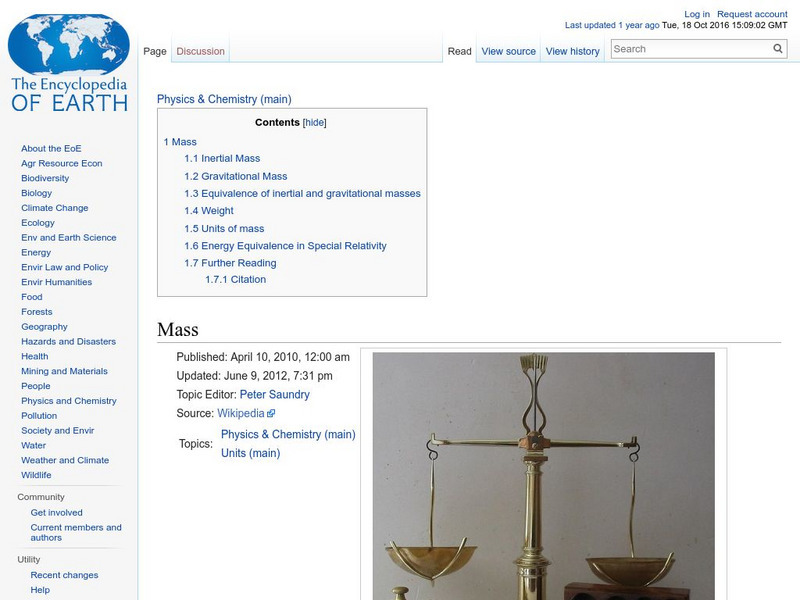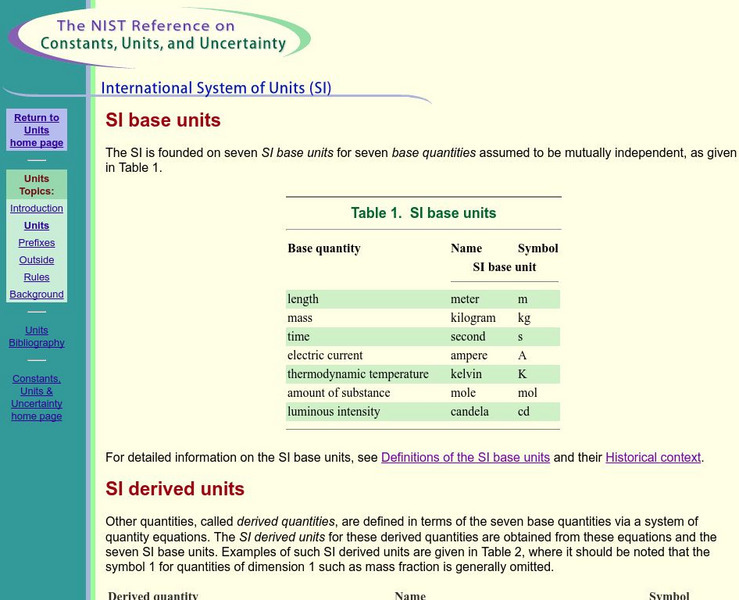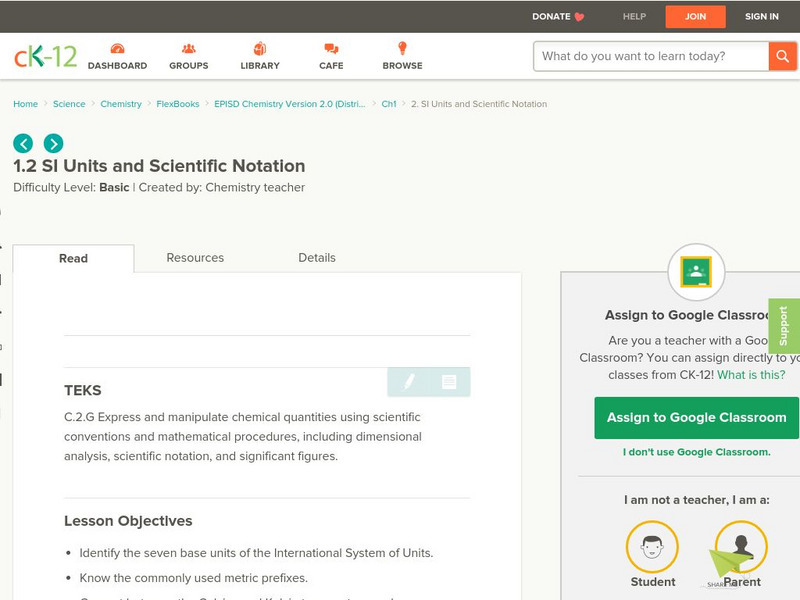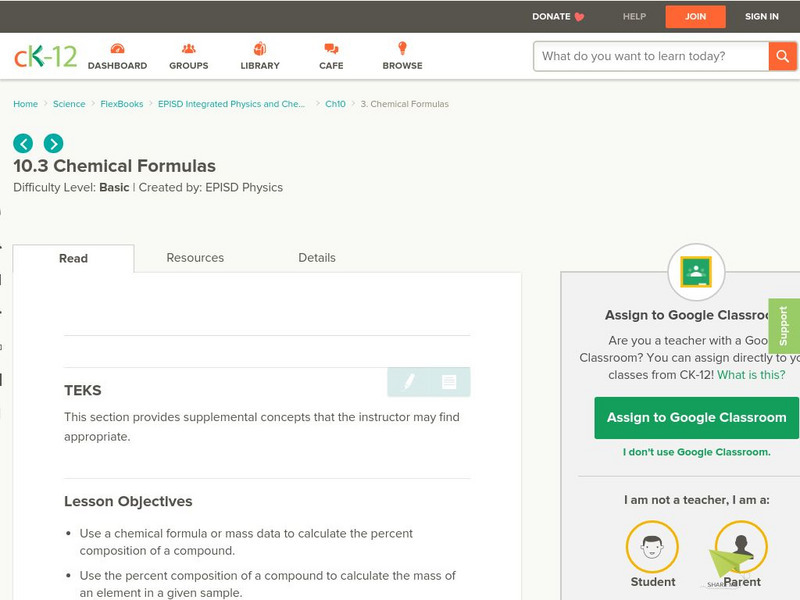Science Education Resource Center at Carleton College
Serc: Investigating Speed and Acceleration Using Tornado Tubes
In this activity, students will use a plywood ramp and various tornado tubes (made from tornado tube connectors and 2 liter pop bottles) to calculate the average speed of the tornado tubes. They will set up 4 investigations filling the 2...
Science Education Resource Center at Carleton College
Serc: Investigating the Effects of Density and Volume of a Cartesian Diver
In this instructional activity, young scholars will investigate why the Cartesian diver dives and rises in a 2 liter bottle. They will also, through their own discovery, come up with a question and then change one variable and record...
Science Education Resource Center at Carleton College
Serc: Investigating Rotational Inertial Using Tops
In this inquiry or guided inquiry (depending on grade level) investigation, students will examine factors affecting rotational inertia. Students will keep a science journal of their investigation.
Science Education Resource Center at Carleton College
Serc: Irregular Shaped Object Lab Test
Students will determine what an unknown substance is by finding mass, volume, displacement, and density of an object. Students will also create a report which will require them to read a graph, interpret data, calculate averages, and...
Science Education Resource Center at Carleton College
Serc: Period of a Pendulum Investigation
Using a simulation, students will determine that the pendulum period is affected by the length of the pendulum and gravity but not mass in this activity.
University of Texas
Inside Mathematics: Fruits and Vegetables [Pdf]
This task challenges a student to use understanding of measurement to convert accurately between units of weight.
BioEd Online
Bio Ed Online: Introduction to Force and Motion
How is the motion of an object affected by forces that act on that object? Can you predict how the motion of an object will be affected by balanced and unbalanced forces? Is there a relationship between force, mass, and acceleration? In...
Encyclopedia of Earth
Encyclopedia of Earth: Physics & Chemistry: Mass
Defines inertial and gravitational mass, their scientific history, formulas used in their calculation, the definition of weight, units used for mass, and mass as perceived in the theory of special relativity.
PBS
Pbs Mathline: Mystery Liquids Lesson Plan [Pdf]
Young scholars gather data from two mystery liquids to explore linear functions. Printable lesson.
University of Colorado
University of Colorado: Ph Et Interactive Simulations: Density
An interactive simulation that teaches about density, mass, and volume through explorations of mass and volume with different objects. This simulation can either be downloaded or played online and includes handouts, lesson plans, and...
University of Colorado
University of Colorado: Ph Et Interactive Simulations: Lunar Lander
An interactive simulation that teaches about the lunar landing, the moon, and mass by observing how changes in mass and thrust affect fuel consumption while trying to avoid a boulder field and put a lunar lander on the moon. This...
PBS
Pbs Teachers: Supersonic Dream
Examine how fuel use affects the mass of different planes during flight. This lesson teaches students how to determine the per person fuel cost of a transatlantic flight for seven airplanes, and display the results on a bar graph. Three...
Other
Lancaster University: Particle Physics Package
A collection of experiments, projects, and articles that will help students understand particle collision and mass, kinetic energy, magnetic field, the Large Hadron Collider, and detection of the Higgs particle.
National Institute of Standards and Technology (NIST)
International System of Units: Si Base Units
This is the definitive source for information on SI base units, derived units, squares, cubes, luminosity, field strength and flux density.
McGraw Hill
Glencoe: Self Check Quizzes 1 Mass and Capacity Metric System
Use Glencoe's randomly generated self-checking quiz to test your knowledge of mass and capacity in the Metric System. Each question has a "Hint" link to help. Choose the correct answer for each problem. At the bottom of the page click...
Sophia Learning
Sophia: Newton's Second Law: Lesson 3
This lesson introduces Newton's Second Law and explains that force is equal to mass times acceleration. It is 3 of 3 in the series titled "Newton's Second Law."
CK-12 Foundation
Ck 12: The International System of Units
[Free Registration/Login may be required to access all resource tools.] In this online tutorial students will begin to identify the seven base units of the International System of Units. They will understand the commonly used metric...
CK-12 Foundation
Ck 12: Chemical Formulas
[Free Registration/Login may be required to access all resource tools.] Students will use a chemical formula or mass data to calculate the percent composition of a compound, and then calculate the empirical or molecular formula for a...
Georgia Department of Education
Ga Virtual Learning: Ap Physics 1: Newton's Laws of Motion
Newton's three laws are deceptively simple, but they are the underpinning of all of physics and govern the mechanics all of your actions in everyday life. Take an in-depth look at these laws in this learning module.
Khan Academy
Khan Academy: Dalton's Atomic Theory
Article explores the key points of Dalton's atomic theory and the laws of conservation of mass and constant composition. Which points do we still use today?
Texas Education Agency
Texas Gateway: Properties: Extensive and Intensive
Find out about physical and chemical properties of matter, and then compare extensive and intensive property characteristics.
Other
Memorial Sloan Kettering Cancer Center: Cancer
General information on what cancer is, types of cancer, treatment and prevention.
OpenStax
Open Stax: Newton's First Law of Motion: Inertia
In the following interactive students will begin to define mass and inertia and understand Newton's first law of motion.
OpenStax
Open Stax: Physical Quantities and Units
Giving numerical values for physical quantities and equations for physical principles allows us to understand nature much more deeply than does qualitative description alone. To comprehend these vast ranges, we must also have accepted...


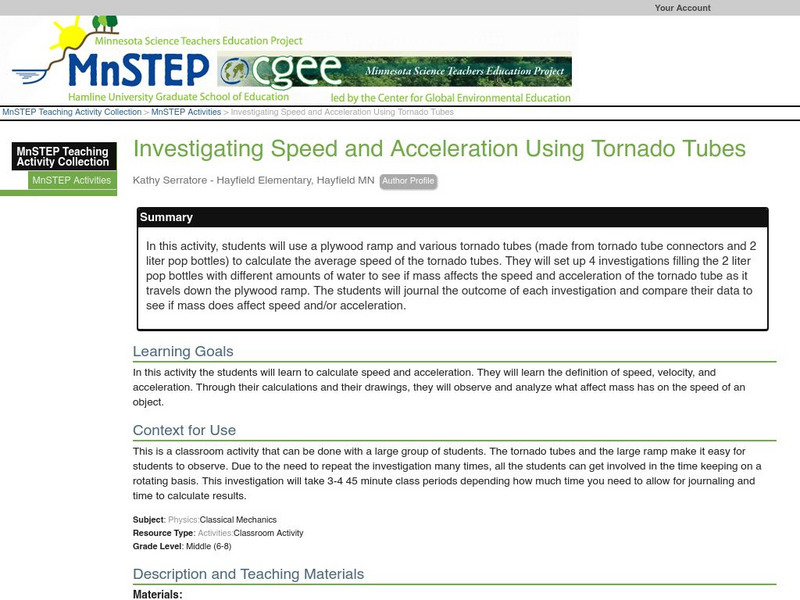
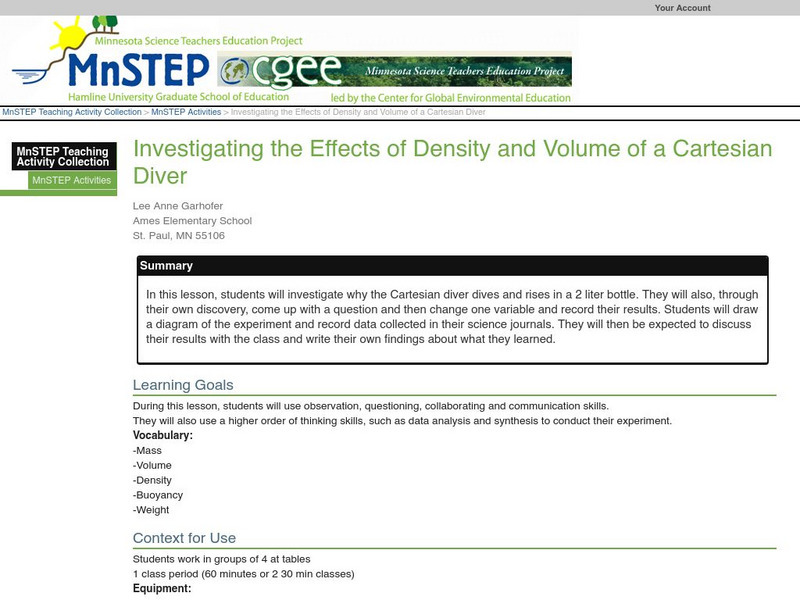



![Inside Mathematics: Fruits and Vegetables [Pdf] Lesson Plan Inside Mathematics: Fruits and Vegetables [Pdf] Lesson Plan](https://d15y2dacu3jp90.cloudfront.net/images/attachment_defaults/resource/large/FPO-knovation.png)
